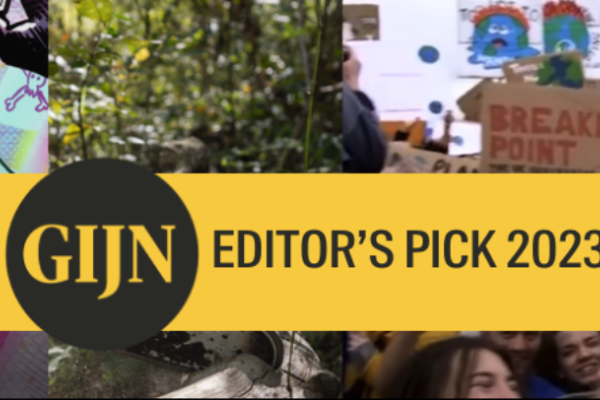- “Diplomatic immunity and impunity” (best stories from Southeast Asia).
This cross-border investigation reveals how diplomatic immunity allows diplomats to get away with exploiting domestic workers. The journalists, using digital forensics and open-source intelligence techniques, created a database with reports about these cases, accompanied by accounts from migrant domestic workers themselves. In this way, they uncovered hundreds of incidents that indicate worker exploitation. Some examples are unpaid wages, overworking and sexual harassment. The workers are often unable to get help, while perpetrators manage to escape punishment.
The story was supported by the Modern Slavery Unveiled grant programme.
- “The Forever Pollution Project” (best 2023 stories in French).
The Forever Pollution project is an innovative collaboration between journalists and scientists, who review the journalists’ data. The investigation involved 18 European newsrooms and it was chosen by the GJIN because it shows for the first time the extent of Europe’s contamination with forever chemical and toxic PFAS. Specifically, the story exposed over 17,000 PFAS-contaminated sites across Europe, with an additional 22,000 potential contamination sites, caused by past or ongoing industrial activities, highlighting environmental concerns. The impact of the investigation is still being measured, but scientists have already cited the database in research. The team was invited to present its findings the UN Food and Agriculture Organisation and the European Commission.
The story was supported by the Investigation Grants for Environmental Journalism.
- "Shipbroken: lethal practices at Turkish shipyards are under investigation" (best 2023 stories in Turkish).
Asbestos, that is especially hard to track in ships, often causes lung cancer, mesothelioma and asbestosis. The team investigated several shipbreaking yards, where old cargo ships were meticulously torn apart to be sold for scrap. Kılıçlar in Turkey, where workers are exposed to the deadly substance without adequate protection, was one of the locations that came under scrutiny. The journalists interviewed many former and current workers, safety officers, doctors, and experts, about the working conditions and safety measures in the industry. Even though the installation of asbestos on new ships is banned, there are still flaws in the ship dismantling process that put staff at risk of lung diseases. Inadequate protection and negligence were the main issues highlighted in the story.
The story was supported by the Investigation Grants for Environmental Journalism.
- "Exporting Hazard: The Dark Side of European Used Cars" (best 2023 stories from Subsaharan Africa)
This investigation from iWatch Africa showed the power of collaboration between African and European journalists, offering readers a perspective that would have been out of reach had the reporting been done only within Ghana or even Africa.
It found that 80% of the more than 280,000 vehicles imported to West Africa from the Netherlands no longer met European emissions standards and often lacked basic road-worthiness certifications. It also revealed that Ghana’s two key local regulators lack any scientific specifications or pollution standards for auto spare parts exported to the country.
Read the story, and read more about the project here
The story was supported by the Investigation Grants for Environmental Journalism.
